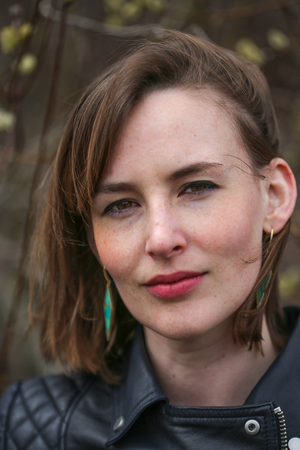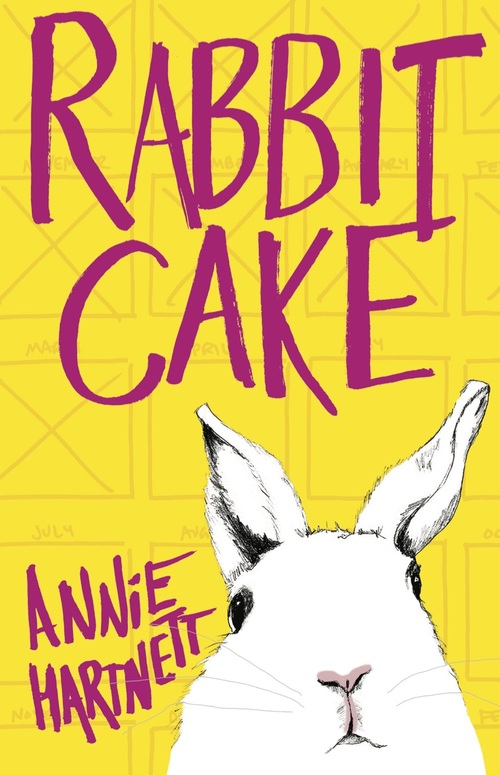
Annie Hartnett is the author of Rabbit Cake. The following is a complete transcript of her interview with Cracking the Cover.
Why do you write?
Honestly, I write because I enjoy it. It’s fun for me, and I enjoy sharing stories with others. I like to entertain people.
Along those lines, have you always wanted to be a writer?
I actually really wanted to be a cartoonist for Disney…but my cartooning talent didn’t quite match my dream. I was like a mediocre basketball player who wanted to play in the NBA. It wasn’t until my final semester of my senior year of college that I realized I wanted to write. I took Christopher Kennedy’s class and he taught me how much fun writing could be, and how great contemporary fiction was. Before that class, I was only reading books I thought were serious literature, and I think I was trying to bore myself to death with writers who were all already dead themselves.
I also did get to draw cartoons to help promote Rabbit Cake! So it is two dreams come true at once!
Where did the idea for Rabbit Cake come from?
It started with a story about two sisters, one who sleepwalks and one who doesn’t. It grew from there.
How did Elvis’ character develop?
Elvis is partly based on who I was as a kid (the animal obsession, the constant what if questions), but she soon developed her own voice and then her own personality quirks followed.
In Rabbit Cake you write about loss and grief. What made you decide to delve into this topic?
When I started writing RC, the mother of one of my closest friends had recently died. I didn’t know her mom all that well, but I met her enough times to be struck by how incredible and vibrant she was. When she died, I was so disturbed that my friend, and the rest of the world, had to go on without a person like her. The mother in the book, Eva Babbitt, is partially based on what I knew of her mom, and a lot of the book came from thinking and worrying about my friend.
 What do you hope readers take away from Rabbit Cake?
What do you hope readers take away from Rabbit Cake?
Well, most importantly, I hope they love Elvis. I hope readers find the book both funny and sad. I hope they think it’s an ultimately uplifting book about coping after enormous loss.
How does teaching others about writing help your own?
I teach classes called “the novel in progress,” so those classes help me to think all the time about what makes a novel work, and what a novel promises the reader.
My classes also help me feel less alone in my process, help me feel part of the writing community. My students range in age from 18-85, and I learn a lot from their experiences and their anecdotes. They are people I really enjoy being around.
You also write essays and short stories. How does the writing process for those differ from writing a novel?
Well it doesn’t take as long! Haha. But stories and essays are also more focused, and I enjoy that. I wrote a lot of flash fiction when I was starting out, because I loved thinking about just one moment in time that revealed something about a character.
Essays are harder for me to write than stories are – it’s difficult to share your own stories, to show your soft underbelly to the world. I’ve written a bunch of essays about my dog who died, a dog that was the most special dog on the planet, and writing those just about killed me.
What are you working on now?
I’m working on my second book, a book about a sex crime in a small town. It’s not an easy one to write.
Is there a book from your own childhood that still resonates with you today?
I was obsessed with The Island of the Blue Dolphins as a kid. I actually mention it in Rabbit Cake, it’s the book Elvis is reading when she starts middle school:
“We were reading Island of the Blue Dolphins in English class, which is about a girl surviving on an island by herself and the girl’s only friend is her dog.”
The book is obviously a much richer, more complicated story than that, but that’s the part I loved about that book: the world around the main character is pretty brutal, but she does okay as long as she has the companionship of her dog…which pretty much sums up my life philosophy.
